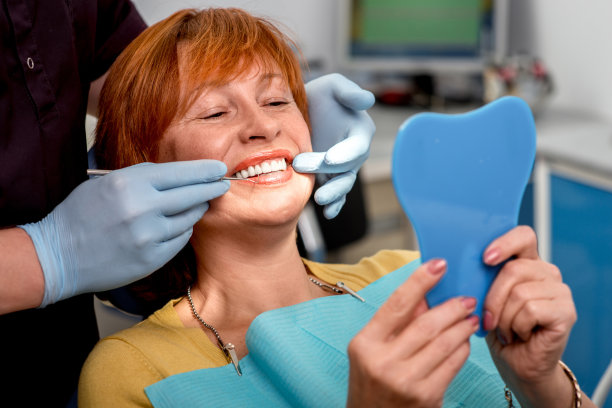Understanding the Tooth Extraction Process and What to Expect During Recovery for Optimal Oral Health
Summary: Tooth extraction is a common dental procedure that may be necessary due to various reasons, such as decay, overcrowding, or infection. Understanding the extraction process, including preparation, the actual procedure, post-operative care, and recovery expectations, is crucial for optimal oral health. This article will explore these four aspects in detail to help patients comprehend what to expect before and after a tooth extraction. By following guidelines and care tips, patients can ensure a smoother recovery and maintain healthy oral hygiene practices.
1. Preparing for Tooth Extraction Procedures

Preparation is a vital step in the tooth extraction process. Prior to the appointment, patients should consult with their dentist to discuss the reasons for the extraction, potential risks, and what to expect. This conversation allows the patient to voice any concerns and understand the necessity of the procedure.
Making arrangements for transportation is equally important, especially if sedation will be used. Patients may feel groggy or dizzy post-operation, necessitating a responsible adult to drive them home. Additionally, having a plan for post-operative care, including food and medications, ensures a smoother recovery.
Patients should also inform their dentist about any medications they are taking, allergies, or existing health conditions. This information is crucial for ensuring that the procedure goes smoothly and safely, as it helps the dentist tailor the extraction to the patients unique needs.
2. The Tooth Extraction Procedure Overview
The actual tooth extraction procedure can vary significantly based on whether a tooth is impacted or if it is a simple extraction. During a simple extraction, the dentist will use local anesthesia to numb the area and then gently loosen the tooth using special instruments.
In the case of a surgical extraction, the dentist may need to make incisions in the gums to access the tooth. This procedure typically involves more anesthesia and may take longer. Regardless of the extraction type, dentists ensure the patient is as comfortable as possible throughout the process.
After the tooth has been successfully removed, the dentist will provide instructions on how to care for the extraction site. This includes avoiding certain foods, not using straws, and controlling bleeding, which are crucial steps to minimize complications and ensure a healthy recovery.
3. Post-Operative Care Essentials
Post-operative care is essential in ensuring a smooth recovery following a tooth extraction. Patients should follow the dentists specific instructions regarding cleaning the mouth and caring for the extraction site. Generally, it is advised to avoid vigorous rinsing or spitting, as this can dislodge the blood clot that forms in the socket.
Managing pain levels is also a significant part of post-operative care. Dentists often prescribe pain relievers or recommend over-the-counter medications to help manage discomfort. It is advisable to take these medications as directed, especially within the first few days after the procedure when pain is typically at its peak.
It is essential to observe for any signs of complications, such as excessive bleeding, severe pain, or signs of infection like fever or swelling. If any concerning symptoms arise, contacting the dentist promptly is critical to address potential issues before they escalate.
4. Recovery Expectations and Oral Health Tips
Recovery from a tooth extraction varies from person to person, but there are general timelines to keep in mind. Most patients can resume normal activities within a few days, but complete healing may take a week or more, depending on the complexity of the extraction.
Maintaining proper oral hygiene during the recovery process is vital. While it is important to avoid the extraction site initially, gently brushing the surrounding teeth and using saltwater rinses can promote healing and prevent infection.
In terms of diet, sticking to soft foods and staying hydrated is recommended during the first few days post-extraction. Gradually reintroducing solid foods as comfort permits can help ease the transition back to a normal diet, while still prioritizing oral health.
Summary:
Understanding the tooth extraction process and what to expect during recovery is essential for ensuring optimal oral health. By preparing adequately, knowing what to expect during the procedure, adhering to post-operative care guidelines, and managing recovery expectations, patients can promote a swift healing process.
This article is compiled by Vickong Dental and the content is for reference only.



